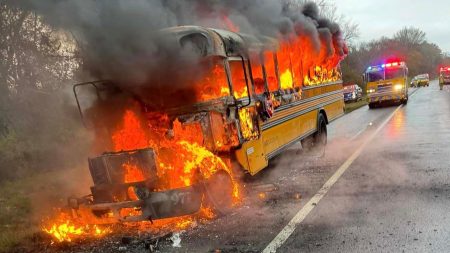Three female Arizona State University students were allegedly sexually assaulted by a “random stranger” in public areas of the Tempe campus, prompting concern about campus safety. This incident was termed an isolated one by the university, but a broader trend of violent crimes on college campuses nationwide has emerged. Recent incidents include college students being murdered, stabbed, and assaulted in various locations, sparking fear among students and families. Antisemitic attacks on campuses have also increased, leading to calls for bipartisan action to combat such hate crimes.
According to Department of Education statistics, there were 38,303 reported criminal offenses at colleges and universities in 2022, representing a substantial increase from previous years. The number of on-campus crimes decreased between 2010 and 2019 but rose again as students returned to in-person learning post-pandemic. The uptick in criminal activity, particularly fueled by sex crimes, has left many students feeling unsafe. Concerns about campus safety have been particularly pronounced at the University of California, Berkeley, where violent crimes such as shootings and robberies have occurred in and around the campus.
Parents at UC Berkeley formed a group called SafeBears to advocate for increased safety measures following a spate of violent incidents in the area. They hired private security at a cost of $40,000, leading to tensions with university leaders. While the pilot program was successful, the university has not expressed interest in reinstating it. Even in cities like Berkeley, where efforts were made to defund the police, steps have been taken to address rising crime rates. Berkeley Mayor Jesse Arreguín acknowledged the need to deter crime and hold individuals accountable, reflecting broader concerns about campus safety and crime prevention efforts.
Experts are still trying to understand the factors contributing to the increase in on-campus crimes, with some attributing it to a full return to in-person learning after the pandemic. Overseas conflicts like the Hamas invasion of Israel have also been cited as influencing factors. Despite declining murder rates in the U.S., college and university campuses have seen a rise in violent crimes, leading to heightened concerns among parents and students. Efforts like the SafeBears program may become more common as communities seek to hold institutions accountable and improve safety measures on and around campuses.
As the debate around campus safety continues, it remains to be seen how colleges and universities will address the surge in violent crimes. Parents, students, and community members are increasingly vocal about the need for enhanced security measures and proactive approaches to prevent crime on campuses. While national crime rates may be decreasing, localized trends indicate a different reality, prompting calls for action and advocacy to ensure the safety and well-being of individuals within the college community. Programs like SafeBears and private security initiatives may play a critical role in shaping the future of campus safety strategies.















